by Justin Mckibben | Jan 3, 2018 | Addiction, Addiction Treatment, Donald Trump, Drug Abuse, Drug Policy, Dual Diagnosis, Family, Fentanyl, Inpatient Treatment, Law Enforcement, Mental Health, News, PAARI, Prescription Drugs, Professionals, Recovery, Sobriety, Stigma, Synthetic Drugs
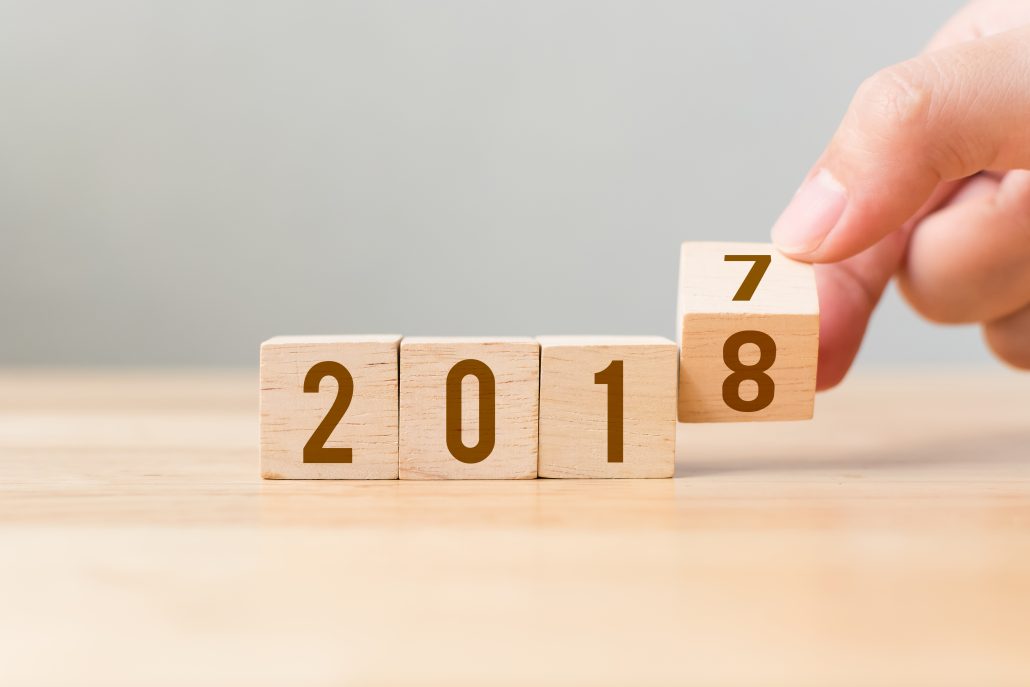
With the beginning of the new year, Palm Healthcare Company is looking forward to helping spread more exciting stories of experience, strength, and hope while also sharing important news stories and exciting new developments that relate to the world of addiction recovery and substance use disorder treatment. As we commit ourselves to another year of fighting alongside thousands of people working toward a better future, we would also like to take some time looking back on all the big moments in 2017 that we shared with our Palm Healthcare Company Blog.
-
President Trump Declares Public Health Emergency: What’s the Plan?
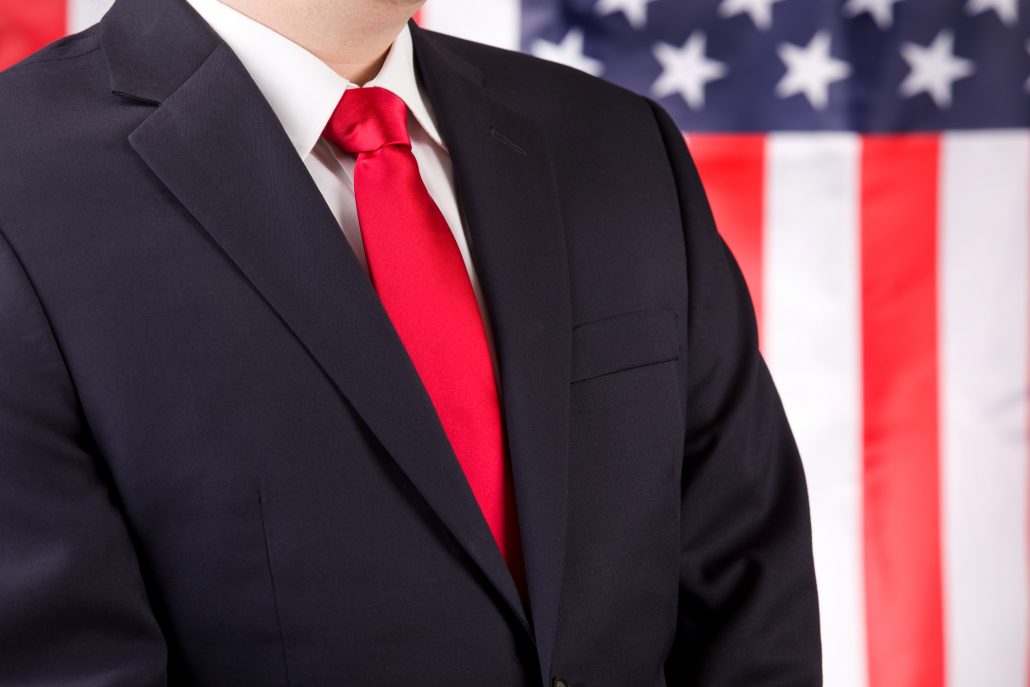
October of 2017, President Donald Trump made an announcement declaring the opioid crisis in America as a Public Health Emergency. This highly anticipated declaration was delivered in a way slightly different than many had expected, noting the technical differences between a Public Health Emergency and a National Emergency.
Many advocates were concerned that this announcement did not provide a concrete foundation for the necessary federal funding and did not initiate much-needed action, but others we assured that this means the Trump administration was taking this issue very seriously. In this article, we took a look at what this announcement did actually accomplish, and what it failed to deliver on.
-
Racketeering for Fentanyl: Opioid Maker Insys Founder Arrested for Bribes
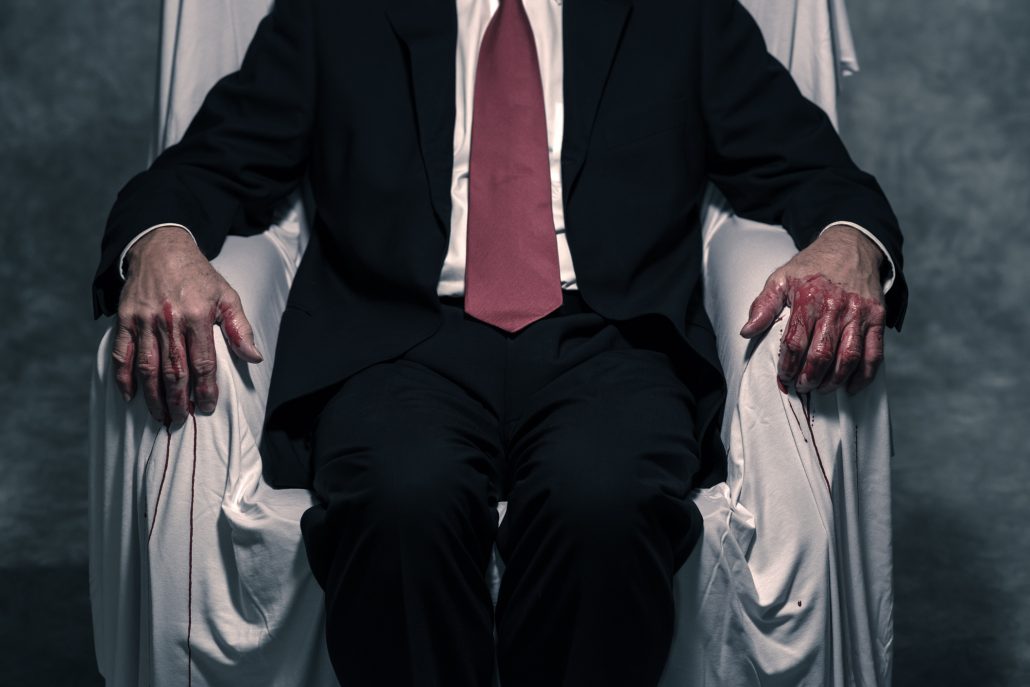
A huge development to another story came in late 2017 when John Kapoor, former CEO of Insys Therapeutics and founding father of one of the most prominent opioid manufacturers in the country, was arrested and charged with conspiring to push the signature drug of Insys Therapeutics, a Fentanyl spray called Subsys, for unacceptable uses through bribes and kickbacks.
The Palm Healthcare Company blog notes how back in 2016 the Justice Department reported to be charging 6 former executives and sales-managers of Insys Therapeutics for conspiring to defraud health insurers.
When looking at the details in this story, it has intensified the conversation about Big Pharma involvement in the epidemic
-
Can Kellyanne Conway Really Compete with the Opioid Crisis?

Not too long after President Trump’s declaration of a Public Health Emergency pertaining to the opioid crisis, Kellyanne Conway was announced as leading the charge on the White House’s efforts for addressing the opioid epidemic.
This Palm Healthcare Company blog saw a lot of comments!
While some find that having a high-profile figure at the head of the efforts gives validity to the White House’s commitment to solving the opioid issue in America, many others are speaking out in frustration. Those in opposition to this appointment say that while she may be useful as a counselor or pollster, she has no experience of expertise when it comes to drug abuse, addiction or substance use disorder treatment.
Thus far the one thing both Kellyanne and the President seem adamant about is a media campaign, but advocates are still afraid this is more “Just Say No” and not enough support for effective resources.
-
After Las Vegas Shooting: PTSD and Mental Health Must be Priority
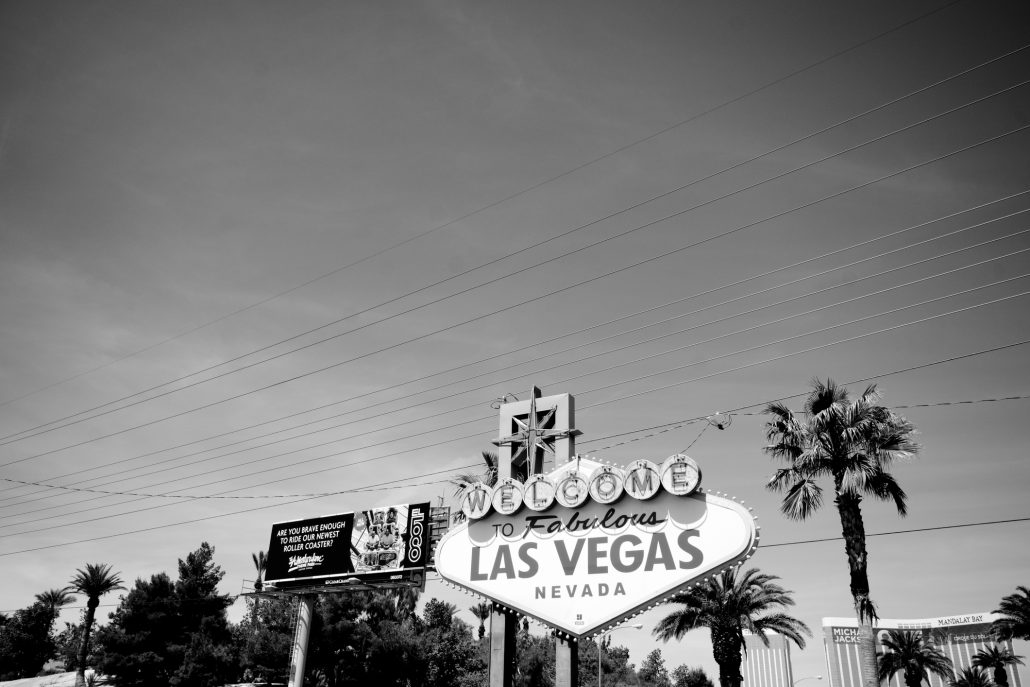
In early October of 2016, the nation was shaken to its core when Las Vegas had one of the deadliest shootings in modern American history. This horrific tragedy flooded newsrooms and live viral footage with the country watching in shock as a gunman killed 58 people and injured 546 more at an outdoor music festival.
In the aftermath of this terrible and heartbreaking incident, our Palm Healthcare Company blog took a look at how such traumatic experiences impact people, and about the importance of those who struggle with Post-traumatic Stress Disorder (PTSD) getting proper diagnosis and care.
At a time when so many people are self-medicating with dangerous or even deadly narcotics, it is important to care for those most vulnerable, especially after such an earth-shattering experience.
-
Police Helping Addicts into Treatment is a Growing Trend Saving Lives

In August of 2017, we took a look back at several programs that had come to light all over the country based on Police Departments working with their communities to offer drug users the chance to get help with addiction treatment instead of being arrested and charged.
The pioneering program came from Gloucester Police Department in Massachusetts back in 2015. This program allowed users to ask police for help, and told addicts they could submit drugs to local law enforcement without fear of being arrested if they were willing to seek treatment. A 2016 study showed that this program was experiencing some impressive success.
Police departments in a number of other states were inspired by this and took up similar programs as a way to help their communities fight the addiction outbreak.
The Palm Healthcare Company blog took a close look at a handful of these programs to celebrate their compassion and success.
-
Sterilized for Cash: This Woman Pays Drug Addicts to Not Have Kids

Pregnant lady’s stomach and her hand holding dollar over black background
When we posted this Palm Healthcare Company blog we saw a great deal of debate in the comments on our Facebook. For over 20 years, Barbara Harris has driven across the country using cash to ask addicted women to give up their fertility. To date, the organization has paid over 7,000 people.
The controversy around such a powerful story had some people showing a great deal of support for someone giving addicted women an incentive to not get pregnant, while other people were appalled and angered that someone would entice desperate women who are not in the right mindset to make such dramatic and life-altering decisions with their bodies.
-
What Chester Bennington Taught Us about Addiction and Depression

(This content is being used for illustrative purposes only; any person depicted in the content is a model)
In July of 2017, the world lost a great artist and inspirational musician with the death of Chester Bennington, the lead singer of the band Linkin Park.
Initial reports were that Bennington had died from suicide by hanging, with later reports indicating that Chester had been drinking at the time of his death. The vocalist had been open about his struggles with depression and drug addiction over the years, and in this article, we took a look at just how much Chester Bennington could teach us about the devastation of depression and addiction.
-
Dear Media, Thank You for Bad Press
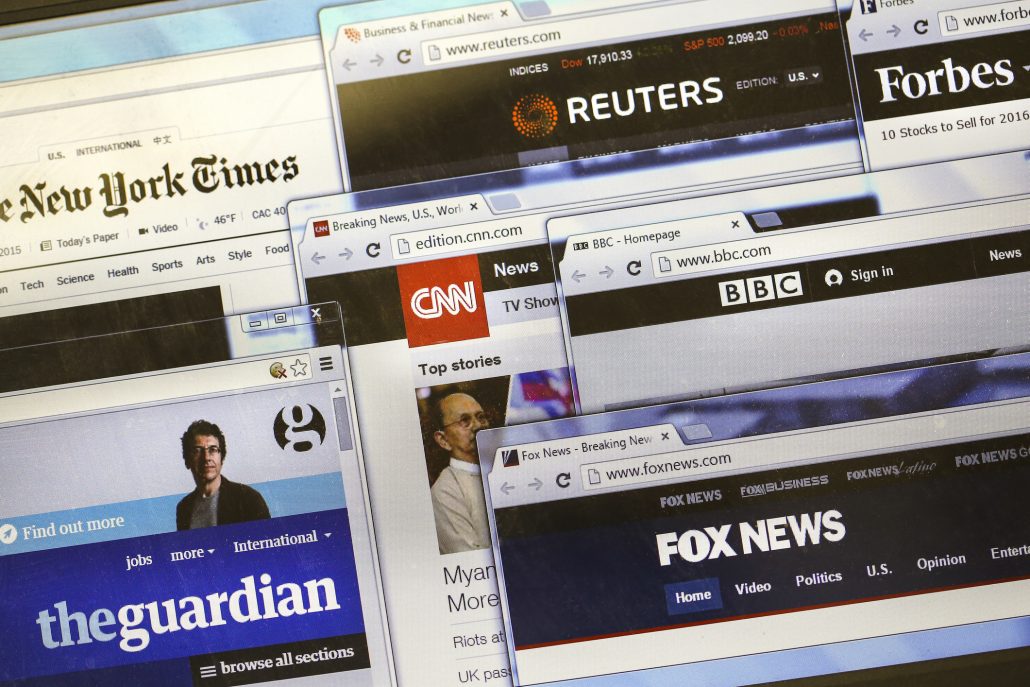
South Florida has been under a great deal of scrutiny recently, specifically concerning the issues facing the recovery community such as unethical and illegitimate sober home operators in the area. In June, there was a Megyn Kelly NBC News Investigation which focused in on Delray Beach, Florida and some of the big problems concerning unscrupulous activities from corrupt individuals exploiting drug addicts in need of help.
We took this time to look over some of the bigger stories concerning the illicit activities in South Florida with the recovery industry while showing support and gratitude for all those working together to try and put an end to operators who are taking advantage of people in need of help.
-
Palm Healthcare Measures Up to Addiction Treatment Outline for EAP
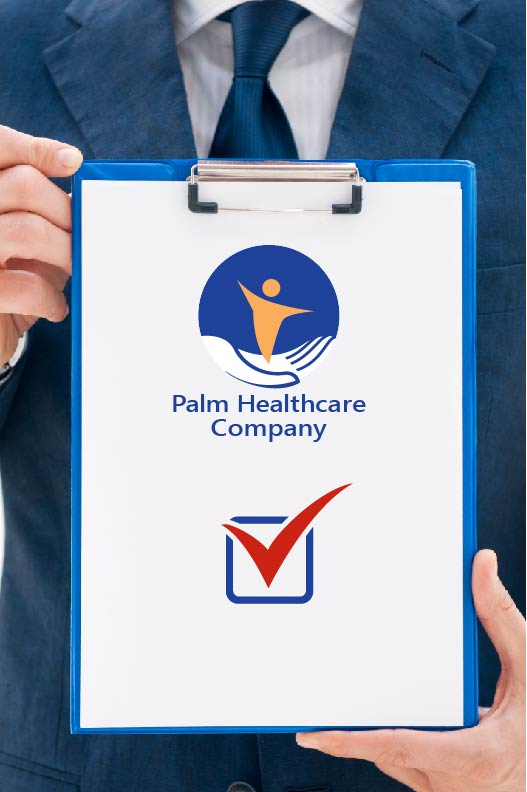
In September of 2017, we took a very close look at an article written by the Journal of Employee Assistance that was designed to help Employee Assistance Programs (EAPs) find the right kind of addiction treatment programs to recommend to their clients.
The outline given for EAPs to find effective and reliable addiction treatment options gives a list of things to look for. The Palm Healthcare Company blog was happy to show off just how all of our facilities measure up to these crucial standards.
Keep an Eye Out for More
Palm Healthcare Company continues to try and share every treatment development, news story or exciting innovation on our blog to not only help more people learn and raise awareness but to offer some perspective and maybe ask some new questions.
Whether it is sports, celebrities, news or politics we are committed to talking about important stories that pertain to drug policy in America, substance use disorder, mental health, and personal wellness. We will continue to touch on the top stories of 2018 to spread the word and hopefully inspire more people to get involved in these crucial conversations.
2017 was an intense, innovative and inspiring year. Here is to hope for 2018.
Holistic addiction treatment means incorporating every aspect of life for each individual with personalized opportunities for lasting recovery. So every bit of information can help anyone make a more comprehensive decision about what kind of recovery plan they want. If you or someone you love is struggling, please call toll-free now.
CALL NOW 1-888-922-5398
by Justin Mckibben | Dec 1, 2017 | Addiction Stigma, Donald Trump, Drug Policy, Fentanyl, Heroin, Law Enforcement, News, Opioids, Prescription Drugs

This past Wednesday, Attorney General Jeff Sessions made the announcement that White House counselor Kellyanne Conway will be the Trump administration’s go-to for opioid crisis efforts. This announcement has been met with both praise and criticism. Some say this appointment actually gives validity to the White House’s commitment to solving the ongoing opioid epidemic, while others see it as the exact opposite.
For a little background, Kellyanne Conway worked as a pollster before becoming Trump’s campaign manager during his run for the 2016 presidential nomination. Currently, Conway serves as a White House spokeswoman and Trump surrogate. She has been seen on countless panels discussing the biggest topics and politics. She absolutely has her work cut out for her, so can Kellyanne Conway compete?
The Kellyanne Cons and Pros
So can this infamous Trump advocate, the woman who practically accidentally coined the phrase “alternative facts” compete with the opioid crisis in America? Kallyanne Conway has become notorious for defending some of President Trump’s most flagrant and controversial “alternative facts” in the media. But in her defense, she also has said some things that seem to highlight important prospects for this problem.
So here are some things to consider when we talk about Kellyanne Conway being put in charge of the opioid epidemic.
Lack of Experience
One of the big problems with this appointment people are pointing out is the lack of experience. Critics say this appointment speaks to how little passion the current administration is actually putting into fighting the opioid crisis since Kellyanne Conway has no experience in public health or with drug policy.
But in a time where Americans seem to be putting more trust in people that don’t typically meet the description of “qualified” in hopes that an outsider might bring better results, it makes sense that a lot of people might still hope Kellyanne can do some good.
Yet, there are still those who aren’t so sure. Tom Synan, a police chief and member of the Hamilton County Heroin Coalition in Ohio tweeted in response to the announcement:
“Ummm… did we run out of Dr’s, cops, addiction specialists or people who are actually dealing with this on the street to lead this?”
As a first responder, Synan is one of many people who are frustrated with the current actions being taken.
“I don’t want to get involved in politics, but it seems like it is a political position … I think I would have gone out to the country and tapped into people who are national experts who are on the street who are literally dealing with this issue every day,”
It seems many on the front lines are not impressed with the Trump administration’s move to put Kellyanne Conway in charge of efforts to combat one of the worst drug problems in the nation’s history.
Publicity and Perception
During a press briefing about the Justice Department’s efforts to combat the crisis where the announcement was made, Sessions said President Donald Trump chose Kellyanne Conway to “change the perception” about opioids and reduce addictions and deaths.
According to Sessions, President Trump has made the epidemic “a top priority for his administration, including every senior official and Cabinet member.”
An opioid policy expert Andrew Kolodny of Brandeis University actually defended the move when speaking to BuzzFeed News, stating:
“It is a positive sign. She is a high-profile figure in the administration, showing the administration takes this seriously,”
Some believe this can offer a sign of hope for more concrete action since many recovery advocates say despite the declaration of a public health emergency from President Trump there has been very little action taken to change the state of the epidemic.
Bertha Madras, a member of the President’s Commission on Combating Drug Addiction and the Opioid Crisis and Harvard Medical School professor, said:
“The most important thing that Kellyanne Conway will provide is access … but also commitment… She was at all the meetings, she listened and took copious notes.”
Let’s hope those are some good notes because thus far the opioid problem in America has shown no signs of slowing down. Jeff Sessions justified the appointment by saying Kellyanne Conway “understanding messaging” and can help turn around public perception. But is this about publicity, or is it about the preservation of life?
Surely breaking the stigma and changing the way addiction is viewed does matter, but should someone who specializes in making things look good to be in charge of how this country deals with one of the most prominent crises we face?
Treatment and Resources
Kellyanne does seem to support treatment, but to what extent it is still unclear. In one interview with ABC Kellyanne Conway did say,
“Pouring money into the problem is not the only answer. We have to get serious about in-facility treatment and recovery.”
So she at least appears to understand how crucial effective inpatient treatment is for recovery.
But when reporters mentioned the fact that there needs to be funding for these programs, she put more emphasis on “a 4 letter word called will” that seems to side-step the question- where will these resources come from?
As it now stands, White House has:
- Left the leadership role of the Office of National Drug Control Policy vacant
- Failed to release any written opioid-control strategy
- Not requested funds to replenish the national public health emergency fund that currently sits at just $66,000
In fact, President Trump’s 2018 budget request would increase addiction treatment funding by less than 2%. And don’t be fooled, that increase includes the $500 million already appropriated by Congress in 2016 under the 21st Century Cures Act with the Obama administration.
Even Chris Christie, the Republican New Jersey Governor who led the White House Opioid Commission, said:
“In New Jersey, we are spending $500 million,” he said. “I am not, quite frankly, impressed with $1 billion from the federal government for the nation.”
Strict Prevention and Punishment
When you look at what she has said on record in regards to opioids and addiction, it doesn’t really inspire a great deal of confidence. Kellyanne Conway has consistently hinted to an outdated ideology of what addiction is and how to address it.
In the past, Kellyanne has said,
“The best way to stop people dying from overdoses and drug abuse is by not starting in the first place… That’s a big core message for our youth.”
That’s right; just say no.
Critics say this aligns with the mindset of Jeff Sessions and others in the White House who seem to think that ‘Just Say No’ tactics actually work, or that purely prevention-based programs like D.A.R.E. can solve the whole problem. While prevention is important, it has proven to be ineffective as a focal point when addressing addiction.
Circling back to publicity, what Ms. Conway does seem to heavily endorse is a White House investigation for a “national ad campaign” on abuse prevention. President Trump himself had voiced his own support for a national advertising initiative to try and deter drug use.
But we all remember those commercials- this is your brain on drugs- and they didn’t really help that much.
Again, it seems Attorney General Sessions and the current administration is more focused on punishment than treatment and strict law enforcement. Sessions said the Justice Department was giving more than $12 million in grants to state and local law enforcement to help them prosecute crimes connected to:
Sessions is also ordering all U.S. Attorney offices to designate opioid coordinators. Kaitlyn Boecker, Policy Manager with the Drug Policy Alliance, has been vocal in her disapproval of the current steps being taken.
“Despite declaring the opioid overdose crisis a public health emergency just last month, the Trump Administration continues to emphasize failed prohibitionist policies while ignoring proven public health measures that we know reduce overdose death, like community naloxone distribution.”
“As we feared, the Administration is using the overdose crisis as an excuse to ratchet up the war on drugs rather than an opportunity to save lives.”
At this point, we can say that the news is not without skeptics. While many are still trying to remain hopeful that maybe because Kellyanne is so vocal and such a well-known surrogate for the president that perhaps she will be able to garner more attention to the issue.
While the fight for more resources continues, we should always encourage people to seek help. There are many safe and effective treatment resources already that have been helping people recover from drug and alcohol addiction for decades, like Palm Healthcare Company. If you or someone you love is struggling, please call toll-free now. We want to help.
CALL NOW 1-888-922-5398
by Justin Mckibben | Oct 26, 2017 | Addiction Treatment, Celebrity, Donald Trump, Drug Policy, News, Opioids

All day people all over the country have been waiting for President Trump to make his formal announcement of the opioid epidemic as a national emergency. Finally, the time for the event at the White House has come, but the announcement has some wondering if enough is being said. So we want to take a little bit of time to talk about some of the highlights from the president’s announcement.
President Donald Trump did give a detailed speech regarding many efforts that are being pursued to combat the opioid epidemic in America. Yet, some are saying that he didn’t say enough about how these resources would be funded, pointing out his declaration was for a Public Health Emergency.
So what does it all mean? Why does the difference matter?
Public Health VS National Disaster
To be clear, both are forms of national emergency declarations. What is the big deal? Well, the difference is the scope and funding that comes with address each order. So today, President Trump, through the Public Health Services Act, directed his acting secretary of health and human services to declare a national health emergency. According to a senior White House official, this designation that will not automatically allocate additional federal funding for the crisis.
If the president has utilized the Stafford Disaster Relief and Emergency Assistance Act, otherwise calling the opioid epidemic a national disaster, the federal government would have been able to immediately tap into funds from the Federal Emergency Management Agency’s Disaster Relief Fund to combat opioids.
Some may say this move was made since the Stafford Act is traditionally used for natural disaster relief, such as with recent Hurricanes Harvey, Irma and Maria. President Trump and President Obama’s administration officials both say that using the Stafford Act would have been too broad and put an unwarranted burden on the Federal Emergency Management Agency’s Disaster Relief Fund. Which seems somewhat likely, since this fund is already being depleted by recovery efforts from the three major hurricanes that hit the United States this year.
Overall, it seems many officials from this and the previous administration feel that a Public Health Emergency was a more appropriate choice out of the two.
What Will Public Health Emergency Do?
The order from President Trump will do some good, including:
- Expanding access to telemedicine to get treatment for those in rural areas
- Instructing agencies to limit bureaucratic delays for dispensing grant money
- Secure Department of Labor grants for the unemployed
- Shift funding for HIV and AIDs programs to provide more substance abuse treatment for people already eligible
- Expands Narcan access
The nationwide health emergency that Trump ordered is more direct but comes with less immediate action.
According to Senior White House officials, they will be following up by working with Congress to get more money for the Public Health Emergency Fund. Which is a good start, since critics are quick to point out there is only $57,000 in this fund.
It is also said to increase federal funding in year-end budget deals currently being negotiated in Congress. In fact, Democratic Pennsylvania Senator Bob Casey introduced a bill this week that would provide $45 billion for opioid abuse prevention, surveillance, and treatment over 10 years. But will it ever see the light of day?
The President Trump Plan: Pros
There were various parts of the speech from President Trump that did hint at some interesting ideas. Some pros and some cons include:
-
Expanding Treatment Options
Possibly one of the bigger moves here is that President Trump said his administration would also be working to reduce regulatory barriers that prevent people from getting treatment, such as one that bars Medicaid from paying for addiction treatment in residential rehab facilities larger than 16 beds.
If the president can remove some of these hurdles, more people may have access to better options for treatment.
National Institute of Health has taken the first steps of instituting a public-private partnership that will be working toward research and resources including:
- New treatment for addiction
- New treatment for overdose
The president also said,
“We are already distributing nearly $1 billion in grants for addiction prevention and treatment. And over $50 million to support law enforcement programs that assist those facing prison and facing addiction.”
-
Indictments
For one, Trump said that the Department of Justice is bringing indictments against Chinese drug traffickers responsible for bringing deadly synthetic opioids like fentanyl into the country.
Another interesting announcement made by President Trump is that the federal government will soon be bringing major lawsuits against people and companies that are involved in the overprescribing and other shady practices concerning prescription drugs.
-
Pulling Dangerous Prescription Drugs
Trump also says the FDA is now requiring drug companies that manufacture one high-risk opioid, Opana ER, be withdrawn from the market immediately. He states,
“We are requiring that specific opioid, which is truly evil, to be taken off the market immediately.”
President Trump also states his administration will also be pushing for the development of non-addict pain medications.
The President Trump Plan: Cons
President Trump did in many cases acknowledge some useful aspects of combatting the epidemic. But, there were also some ideas that continue to fall short of innovative.
-
Advertising
President Trump is also emphasizing the use of a “Massive advertising campaign” to keep young people from doing drugs in the first place. President Trump said-
“- they will see the devastation and ruination it causes to people and people’s lives.”
“The fact is if we can teach young people, and people generally, not to start, it’s really, really easy not to take them. And I think that’s going to end up being our most important thing. Really tough, really big, really great advertising.”
While prevention and education are extremely important, many criticize this strategy saying that these old tactics of “Just Say No” and the D.A.R.E. program just don’t work. This advertising might have been useful if focused on treatment options, but if it is more of the scare tactics of “Refer Madness” then we probably won’t see much improvement.
-
The Wall
The Commander in Chief also took this opportunity to promote the building of the wall between the United States and Mexico, stating:
“90% of the heroin in America comes from south of the border, where we will be building the wall, which will be greatly helping this problem!”
He took time in his speech to highlight the need to “breaking up gangs and distribution efforts” as a primary way to curb the epidemic.
Of course, the wall is often an issue of contention. Many experts have argued since President Trump proposed this as the key element of his war on opioids that attacking the supply has never worked with preventing the spread of addiction. And even if it did, many believe the wall will do little to prevent drugs from being brought into America from south of the border.
-
Funding
Some experts are still saying this is not a proper plan because while it does allow federal agencies to move grant money, it establishes no immediate funding for a crisis that killed over 64,000 Americans last year.
Meanwhile, the GOP-controlled House of Representatives today narrowly passed a Senate-approved budget resolution 216 to 212, that some experts claim will cause all $1 trillion cut to Medicaid and $500 million cut to Medicare. Many recovery advocates fear that with the ambiguity concerning health care coverage there will not be enough resources in time to provide treatment to those in need.
Some representatives still believe more funding needs to be committed to the issue, while others say that many people struggling with addiction don’t have health insurance and that more must be done to expand coverage.
Moving Forward
The chairman of President Trump’s opioid commission Chris Christie commended the president, calling his announcement a “bold action” to address the opioid crisis. The opioid commission will present a comprehensive plan next week with the final report on November 1st.
No matter what your opinion at this point, we can all agree we need to be moving forward. This means taking an honest look at what is working and what isn’t. Still, the fact that the highest office in the nation has taken the time to address the issue in such terms is hopefully a sign of dramatic change on the way. Only time will tell how this latest move from President Trump will truly impact the opioid epidemic. For now, there is sure to be plenty of debate over the weight of today’s statements and how they will influence policy. There are some promises to be kept, for sure.
There is a lot more to this conversation, but for now, we have to hope that some of these new opportunities will give options and hope to those in America suffering tragically. The opioid crisis is nothing we can expect to be fixed by one person overnight. We have to continue to provide resources to those in need. Palm Healthcare Company facilities have proudly provided addiction treatment resources for decades to those in need. If you or someone you love is struggling, please call toll-free now.
CALL NOW 1-888-922-5398
by Justin Mckibben | Oct 24, 2017 | Addiction Stigma, Addiction Treatment, Drug Policy, Inpatient Treatment, Mental Health, News, Prescription Drugs
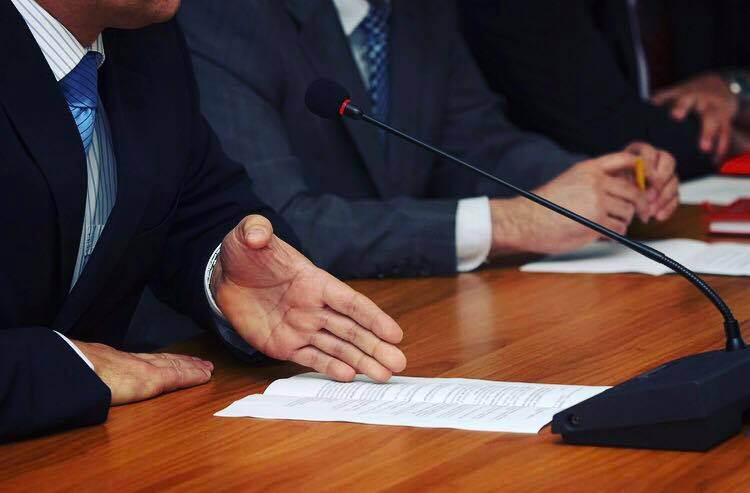
If that headline seems kind of confusing, don’t worry, it should. Technically insurance companies are already required by law to provide the same coverage for substance abuse and mental health that they do for other health conditions… and therein lies the issue.
Back in August the White House Opioid Commission, established by President Trump and led by New Jersey Governor Chris Christie, made several recommendations to the current administration about how to address the current drug crisis as it damages communities across the country. One of those recommendations was to declare a national emergency, while others had to do with options for prevention and education.
In the aftermath of ex-DEA agent Joe Rannazzisi’s eye-opening interview exposing the shady connections between Congress and Big Pharma companies, many have been looking closely at how government officials and multi-billion dollar empires helped create the opioid epidemic. Now the White House’s Opioid Commission is putting a focus on how health insurance companies and the flaws in their policies have contributed to the intensifying addiction crisis.
So with the opioid commission saying they will call-out insurers and make demands on coverage for addiction treatment, will more people have access to help?
Restricted Addiction Treatment
One of the biggest issues the opioid commission seems to have with insurance companies is that frequently their policies only cover one type of addiction treatment and not others. It seems insurance companies are convinced that with a complex and extremely personal issue like substance use disorder or mental health conditions, there is a one-size-fits-all answer. Sadly, most advocates can tell you this isn’t the case.
Something else especially frustrating is that laws already exist to prevent insurers from treating addiction treatment different than any other health issue. Chris Christie himself said,
“Why are we still not seeing addiction services covered, and mental health services covered as broadly as every other type of disease?”
“And what do we need to do to make sure that the law is enforced and followed?”
The Mental Health Parity and Addiction Equity Act of 2008 requires health insurers to treat mental health and substance abuse disorders the same as any other disease. It means they should provide health care coverage for these conditions without additional limits, co-pays or deductibles. If companies add on additional requirements, it creates even more barriers between the suffering individual and treatment. Sadly, not every insurance company thinks it has to play by the rules.
A task force convened by President Barack Obama last year reported that numerous insurance companies still place a number of limits on addiction coverage, like more strict pre-authorization requirements. The insurance companies claim that their policies are only part of a complex problem, insisting that the issue also has to do with shortages of doctors and poor medical training from healthcare providers in the field of addiction treatment.
However, the simple fact that insurance companies are still trying to push back against supporting addiction treatment has the opioid commission ready to address the inconsistencies that are making it even harder for people who need help to get the help they deserve.
Holding Insurance Companies Accountable
The opioid commission is not holding back when it comes to trying to make insurance companies contribute to solutions since they helped contribute to the problem. The New Jersey Governor warned health insurance companies to be prepared for a final report that will “place new demands” on health insurance policies.
Christie and the opioid commission seem to be playing offense, saying Big Pharma drug companies and health insurers profit while allowing an epidemic of addiction to continue, but these new demands will hopefully change all that. Christie added,
“I’m a capitalist. I want everybody to make profits. I think it’s great. But we can’t any longer go about addressing this problem this way,”
“I hope you’re prepared to accept the challenge, because we know if it hasn’t gotten into your own house yet, it could, and then all the sudden your perspective on this problem could become markedly different.”
Not only is there more pressure on insurance companies when it comes to treatment options in their policies, but with how they handle medications in the first place.
Health insurance providers are also under a greater deal of scrutiny for policies that sometimes favor powerful and addictive painkillers over less addictive, and more expensive, variations. So not only are they limiting the options when it comes to getting treatment for substance abuse, but they are limiting coverage of medications to more addictive drugs to save money.
Insurance providers did show up to testify at the commission to help create a more comprehensive view of the issue. Involved were executives from some of the nation’s largest insurance companies:
- Aetna
- Anthem
- Blue Cross Blue Shield
- Cigna
- Harvard Pilgrim Health Care
- Kaiser Permanente
- UnitedHealth Group
- UPMC Health Plan
Representative Elijah Cummings, the ranking member of the House Oversight Committee, also has questions for many of those same companies. Some of these inquiries stem from a report by The New York Times last month stating insurance companies “erected more hurdles to approving addiction treatments than for the addictive substances themselves.”
Cummings wrote letters to seven of the companies which state,
“This is not a hypothetical problem. The over-prescription of opioids leads to addiction and death.”
The White House’s opioid commission has also spoken with leaders in the pharmaceutical industry. All this shows that the opioid commission is not only worried about exploring our options for fixing the issue but also in examining all the elements that helped cause the opioid epidemic in America. Christie says the final report to President Trump will include sweeping recommendations but will also be “extraordinarily instructive in terms of how we got here, which is an important thing for this commission to acknowledge.”
The commission will hold its last meeting November 1st before delivering its final report to the President. Only time will tell what demands this report plans to place on insurance companies to provide more coverage for addiction treatment services.
Will Insurance Companies Change?
The big question becomes how will this impact the services offered by insurance companies. Will the opioid commission’s suggestions help shape new policies, or will some insurance companies continue to ignore the parity laws put in place to make sure they do not discriminate against the treatment of substance abuse?
Will these changes allow for the coverage of different innovative and holistic treatment options, or will the change only support programs that depend on maintenance drugs like methadone or Suboxone?
Hopefully, the new demands being put on insurance companies will help to support mental health and substance abuse parity. When it comes to addressing addiction in America, we need every resource we can get in order to move forward with overcoming the opioid epidemic. With more officials taking a closer look at every aspect of the issue, perhaps we can get a more effective strategy for addressing the problem.
With so many people struggling with opioids and other drugs across the country, comprehensive and effective treatment is essential to making any real progress. For decades Palm Healthcare Company facilities have been providing holistic addiction treatment options that help create lasting change. If you or someone you love is struggling with substance abuse or addiction, please call toll free now.
CALL NOW 1-888-922-5398
by Justin Mckibben | Oct 17, 2017 | Drug Policy, News, Opioids, Prescription Drugs, Recovery, Stigma
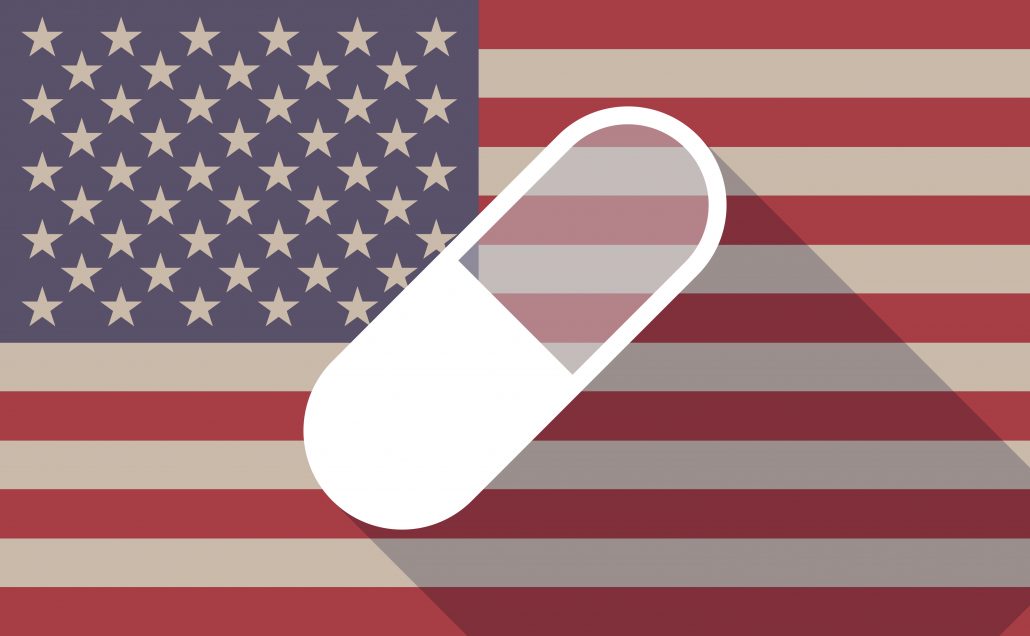
Back in August, the Commission on Combating Drug Addiction and the Opioid Crisis began urging President Trump to declare a national public health emergency to combat the opioid crisis that has crippled countless communities around America. While the President did soon enough say that he believed the opioid epidemic was indeed a national emergency, the actual official process has yet to begin. However, just this week news broke that President Trump will soon formally declare the “national emergency” status of the opioid crisis.
Reports indicate President Trump plans to make the official declaration next week. It seems appropriate following the explosive exposé following the story on ’60 Minutes’ of former DEA agent Joe Rannazzisi pointing a finger at Big Pharma companies, Congress, and lobbyists for fueling the opioid epidemic.
In fact, Republican Representative Tom Marino, who was the top pick for the Trump administrations Drug Czar, was name-dropped in a less than flattering light in the ’60 Minutes’ piece. Reports today now show Marino has withdrawn from consideration following the story.
So what does this newest revelation mean for combatting the opioid crisis?
Raising Awareness
One of the initial reasons for declaring a national emergency is pretty straight-forward; raising awareness. Not that we don’t see enough shocking news stories or warnings from local officials being issued in various states, but more attention on the issue will help channel more resources into actually helping address it.
As the commission states in their report:
“It would also awaken every American to this simple fact: if this scourge has not found you or your family yet, without bold action by everyone, it soon will,”
“You, Mr. President, are the only person who can bring this type of intensity to the emergency, and we believe you have the will to do so and to do so immediately.”
When the President of the United States says something is a priority, people take notice. Regardless of whether people always agree on politics, when we can all get behind a major issue and put effort into a more inclusive conversation, there is a better chance more can be done.
Overcoming Addiction Stigma
One of the most important aspects of fighting addiction is overcoming the addiction stigma itself. Many people who are suffering do not get the help they need because they are afraid of the stereotypes associated with drug abuse. A lot of people still doubt what the majority of the medical and scientific communities have adopted as fact; that addiction is a health issue, not a moral failing.
By declaring the opioid crisis a national emergency, President Trump has an opportunity to promote education along with public awareness. The more we can help people to understand how addiction affects the mind and body, the better odds we have of supporting those struggling with compassionate and effective treatment options.
Funding for Fighting Opioids
Perhaps one of the biggest hopes for many addiction recovery advocates is that by President Trump declaring the opioid crisis a national emergency he will influence lawmakers to allocate more funding to resources combatting addiction.
A federal declaration would also allow the government to pull funding from other areas as well, such as funding used for the Public Health Emergency Fund, or even the federal Disaster Relief Fund. So while America has been struck pretty hard by hurricanes and natural disasters, some of this same funding may end up going toward creating addiction resources.
One thing many are hoping is that these new funds will also go to promoting more addiction treatment options across the country. Some states may pursue incentives for performance-based enhanced care management (ECM) program, like one recently implemented in New Jersey. Others may put those resources into prevention and education initiatives.
One thing should seem pretty clear; treatment options should be a priority. We already know we cannot arrest our way out of this problem. The War on Drugs did not work, and many do not expect it will now either. With President Trump declaring the national emergency, hopefully, the new effort will go into protecting mental health and substance abuse parity with healthcare and insurance providers. If we have more ways to help those already desperately in need, we could see a better chance for a way out.
With the CDC stating an estimated 91 Americans dying every single day from opioid-related death, which many experts believe is grossly underreported, helping more people fighting opioid addiction find a way out is crucial. However, we should not wait on politicians, health officials or anyone else to fix it. Recovery takes action. If you or someone you love is struggling, please call toll-free now. We want to help.
CALL NOW 1-888-922-5398
by staff | Oct 3, 2017 | Addiction Stigma, Addiction Treatment, Drug Policy, Dual Diagnosis, Inpatient Treatment, Law Enforcement, Naloxone, Narcan, PAARI, Stigma
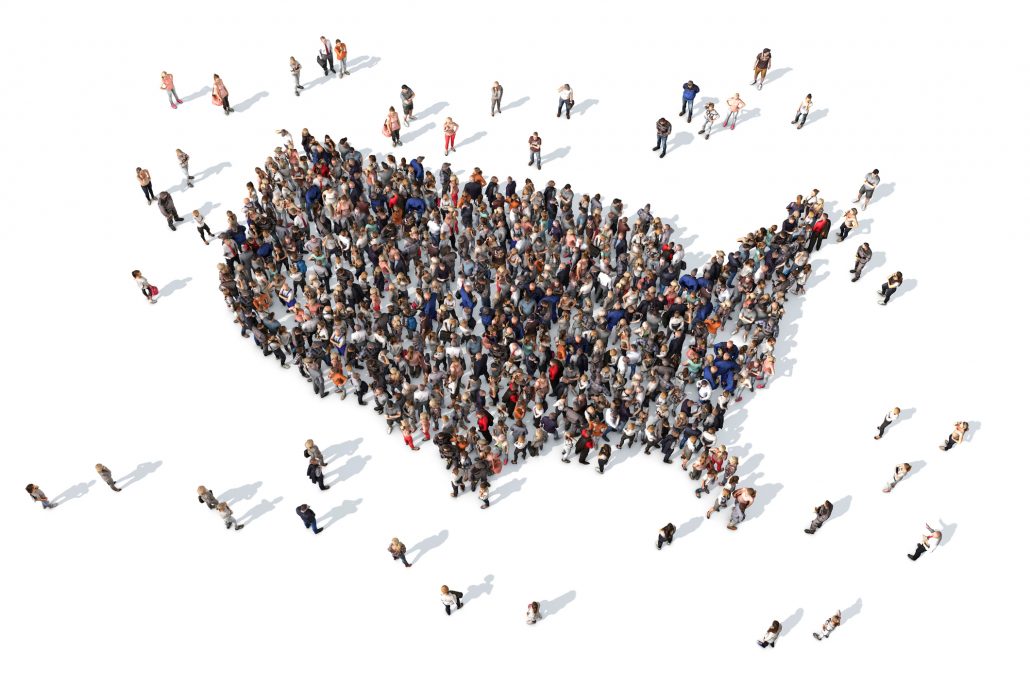
Drug overdoses killed 64,000 Americans last year. That is an increase of more than 20% than the overdose deaths in 2015. Those numbers have nearly quadrupled since 2000. Now nearly two-thirds of overdose deaths are from by opioids. Some are from prescription opioids; others are from illicit heroin or synthetics like fentanyl.
However, some are concerned that the action we have seen thus far is too little too late. The president’s 2018 budget only increases addiction treatment funding by less than 2%. That already includes the $500 million appropriated by Congress in 2016 under the 21st Century Cures Act. So needless to say, many recovery advocates worry that the resources are just not going to be enough.
If we look at the recommendations of the president’s opioid commission, and at other initiatives that have started to gain some traction across the country, we can find patterns. There are some concepts that consistently show up, and perhaps if we focus on these similarities, we can see why so many minds are thinking alike.
So here are 5 big ways America can overcome the opioid epidemic.
-
Break the Stigma
In order to accomplish most of the things on this list, America first has to consistently fight to break the stigma of drug use and addiction. Misunderstanding what addiction is and how it happens only undermines progress to addressing it. If America hopes to overcome the opioid crisis, we have to be more willing to see it for what it is.
Right now the issue of addiction stigma is still a big deal. While we may have come a long way from how it was decades ago, there are still a lot of people who refuse to consider addiction as an illness. A lot of people still refuse to acknowledge the various factors that contribute to addiction, such as genetic predisposition and instead insist addiction is purely by choice.
If we can see how drug use affects people from all different walks of life, and for countless different reasons, we can then treat those suffering from more compassion. Finding more effective methods of treatment means having a better idea of what really causes addiction, and what feeds it.
-
Support PAARI, NOT Punishment
Speaking of compassion, supporting PAARI and not punishment is a perfect example of letting go of stigma to work toward saving lives.
It is about time that all of America realizes that the old ways of the failed War on Drugs do not work. Thankfully, it seems a lot more people across the country now understand that we cannot arrest our way out of this problem. Harsher punishments and severe sentences have not deterred addiction, they only support stigma.
Now in America, there are nearly 300 law enforcement agencies across 31 states that have Police Assisted Addiction and Recovery Initiative programs (PAARI). These PAARI programs offer treatment for drug users who come to authorities looking for a way out. Instead of fearing the threat of arrest, people struggling with substances are encouraged to reach out to law enforcement in order to be put in contact with treatment options or recovery networks.
This revolutionary new mindset was inspired by a department in Gloucester, Massachusetts not too long ago. So far these efforts appear to cost much less and with better results than efforts focused on punishing addicts.
-
Create Resources for Treatment
Today addiction medicine is an urgently needed specialty, but there is not much glory in it compared to other areas of medical work. One way the federal government could help create more resources for treatment is to provide tuition incentives for medical students to enter addiction-related specialties and work in underserved communities. By encouraging this kind of work, we further shed the stigma of addiction and shift the perspective to helping care for a vulnerable community.
But don’t just end with specialists.
By supporting things like Medicaid expansion, addiction and mental health treatment can be made available to more people who may not have access to healthcare under limited coverage. More state and federal funding can also be allocated by officials to help build or strengthen addiction treatment programs provided by the state.
-
Enforce Mental Health Parity
The Mental Health Parity and Addiction Equity Act of 2008 actually requires insurers provide equal benefits for mental health and addiction treatment that they do with other medical therapies or surgery. Thus, the law means to make discrimination against addicts by insurers illegal.
However, some insurers defy this law by imposing illogical treatment limits or tedious authorization requirements. In other words, insurance companies are finding ways to cheat the system in order to avoid paying for addiction and mental health treatment.
America and our government must to better to enforce mental health parity. If we want people to get the treatment they need, we have to protect their right to treatment and assure that insurance providers won’t be able to skip out on the bill.
According to John Renner, president of the American Academy of Addiction Psychiatry, between 50%- 70% of people with substance abuse problems also suffer from a mental health disorder such as:
- Depression
- Post-traumatic stress disorder (PTSD)
With mental health and addiction so closely related, making sure those struggling with opioids and other substances receive care for mental health disorders or other co-occurring conditions it vital to lasting recovery.
-
Preserve life
First and foremost; preserve life! This should always be a priority when facing any kind of epidemic. Regardless of the circumstances, the preservation of life should always be paramount. This is a discussion that has become crucial in the fight against opioids considering the need for life-saving medications and harm reduction tactics.
At the moment, first responders and emergency rooms do not have adequate access to Naloxone or Narcan, the opioid overdose antidote, to save lives. Both federal and state health agencies can negotiate pricing for naloxone and expand access. They can also encourage pharmacies that offer prescription-free access in some areas.
Another aspect of saving lives involves harm reduction strategies, which tend to be a little more controversial. Not everyone likes to support programs like safe injection sites or needle exchange programs. However, whether you think these programs enable addiction or not, these programs are proven to help preserve life. Between preventing the spread of infectious disease and providing a supported environment in case of overdose, these harm reduction models can prevent a lot of needless loss of life.
One indisputable precedence in the effort to overcome opioids is keeping people suffering alive long enough to get them treatment. The more people we can help survive opioid addiction, the more people have a chance of recovering.
Drug abuse and addiction is a devastating and deadly disease, and providing effective and compassionate treatment makes a lifelong difference. Part of solving the problem is changing the way we look at it and changing how we treat each other. If you or someone you love is struggling with substance abuse or addiction, please call toll-free now.
CALL NOW 1-888-922-5398















